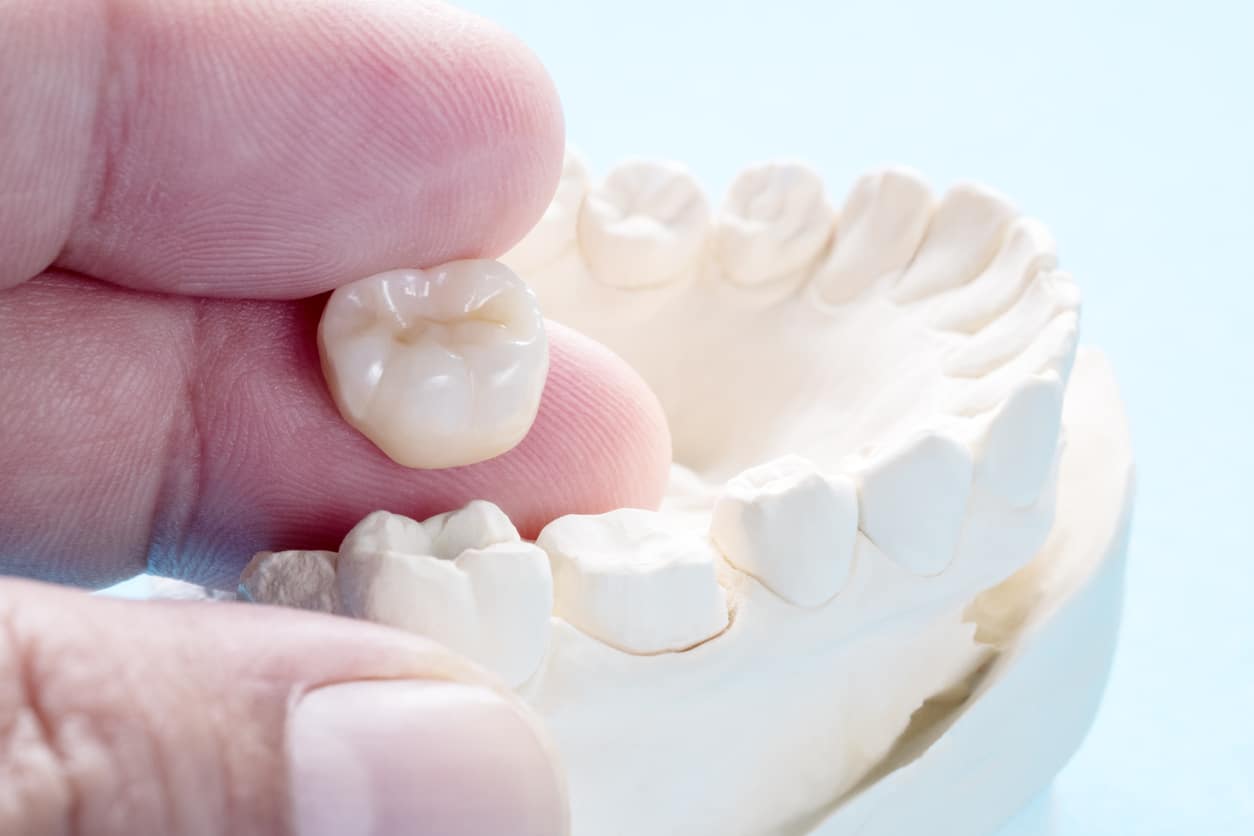Dental Crowns

Whether it’s because of damage, decay, or the result of a baby root canal, there are times when children need dental crowns. On secondary teeth, we have the same options as dental crowns for adults; primary (baby) teeth, too, can receive dental crowns, but the materials used are often different.
With dental crowns, we’re able to preserve the healthy portions of a tooth while replacing the damaged structure in order to restore function to the tooth in question. This is preferable to extraction; extracting primary teeth can cause orthodontic problems, while extracting secondary teeth can cause changes in the bite, loose or shifting teeth, and bone loss in the jaw.
The first step in getting a dental crown involves preparing the tooth. During this visit, we remove all areas of damage and decay and then take impressions of the prepared tooth. These impressions are sent to a dental laboratory where skilled technicians fabricate a crown that fits securely on the prepared tooth and matches the shape and size of your child’s natural teeth. A temporary crown is placed on the prepared tooth in order to protect it from damage.
Once the permanent crown has been fabricated, your child will return to our office in order to have the crown cemented or bonded to the prepared tooth.
Common materials used for pediatric dental crowns include:
Ceramic Crowns
Ceramic crowns are an option for replacing secondary teeth that are visible when your child smiles. They’re made to match the color of your child’s natural teeth, blending in with the rest of their smile. Zirconia ceramic crowns may be used for restoring primary teeth.
Porcelain Fused to Metal Crowns
This type of crown blends the strength of a metal alloy with the aesthetics of a ceramic crown. Porcelain fused to metal crowns are appropriate restorations for secondary teeth.
Gold Alloy Crowns
Another option best for secondary teeth, gold alloys are the strongest material available for crowns. Because of their appearance, they’re best reserved for replacing molars at the back of the mouth and for patients who have a habit of jaw clenching or teeth grinding.
Base Metal Alloy Crowns
Base metal alloy crowns are strong, durable, and resistant to corrosion. They are commonly used when there is less healthy tooth structure available than needed to support ceramic or porcelain crown.
Stainless Steel Crowns
Stainless steel has been the gold standard when it comes to pediatric dental crowns for restoring primary teeth. They are resistant to corrosion and veneers can be applied to them to make them more aesthetic.
Composite Crowns
These crowns are less strong than stainless steel, so they are usually reserved for front teeth rather than molars. They can be made to match a child’s teeth and they are an affordable option for replacing primary teeth.
During your child’s appointment with us, we will determine if a crown is an appropriate solution and work with you to decide upon the best type of crown for their needs.
